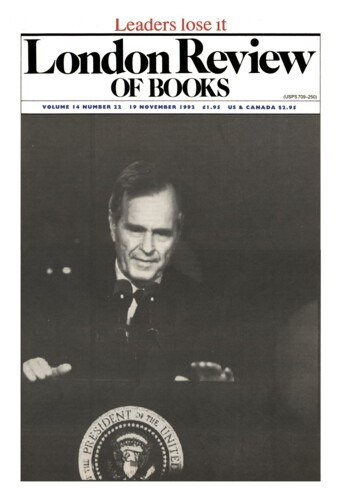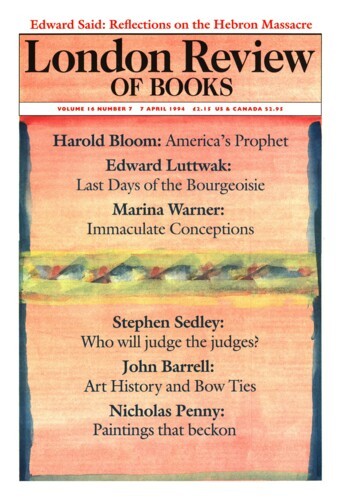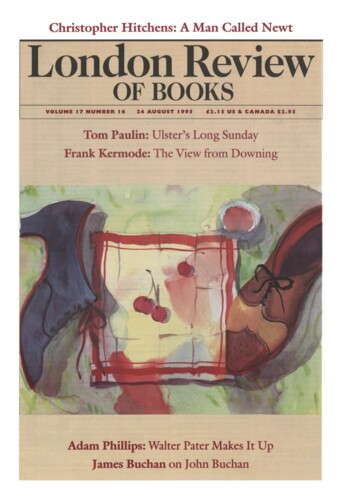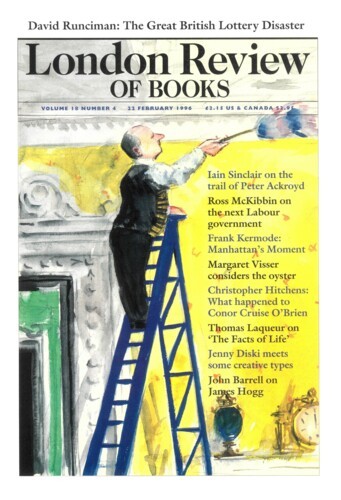When will he suspect?
John Barrell, 19 November 1992
I don’t quite know what to say about Angels and Insects. It consists of a pair of novellas, ‘Morpho Eugenia’ and ‘The Conjugial Angel’, which, like Possession, are set in Victorian England, and written in a free imitation of mid-19th-century literary English. My doubts are the obvious ones. It’s not that I can’t make up my mind about whether or not the work they do, of re-creation and creative imitation, is well done – much of the time it’s very well done, as well as I can imagine it could be. But even when it is, I’m not sure of the point of doing it, or of doing it more than once (just to see if it can be done). The idea behind these novellas seems to be something like the converse of the adage that if a thing is worth doing it’s worth doing well: if a thing can be done well, it must be worth doing. But the more successfully Byatt re-creates the Victorian novel of ideas, the more she persuades us of the irredeemable pastness of the past she re-creates, and the more the ideas she deals with, of determinism, individual freedom, the nature of life after death, seem to announce that these are no longer our concerns, at least not in this way, in these contexts, in these words and forms. The book seemed far more remote from me than any Victorian fiction, partly no doubt because of my awareness of the factitiousness of the enterprise, but also because that awareness was continually reinforced by the inevitable factitiousness of the style, which becomes Victorian at the cost of using too many formulas and too few resources, like Latin prose written by a thoroughly competent Latinist.’





